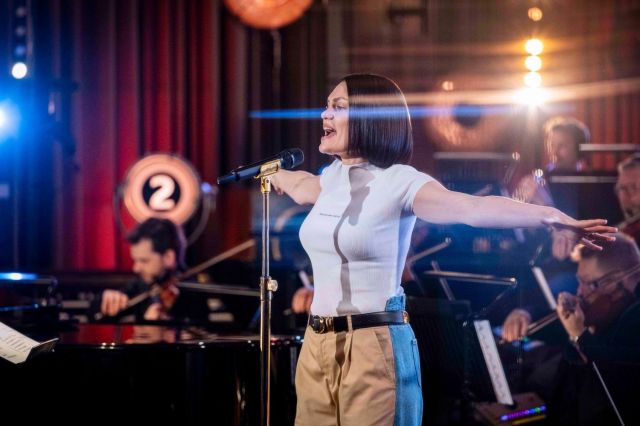Brief Encounter with … Playwright Simon Stephens
The production sees him reunite with the play’s original director Marianne Elliott, and runs in the Lyttelton Theatre until 24 March.
Stephens’ recent credits include his Whatsonstage.com Award-nominated adaptation of The Curious Incident of the Dog In the Night-time, which transfers to the Apollo Theatre from 1 March, and his acclaimed reworking of Ibsen’s A Doll’s House. His other plays include Three Kingdoms, Wastwater, Punk Rock and Harper Regan.
What are your reflections on 2012?
In the future I’ll probably look back on 2012 and regret not enjoying it more. I spent so much time running from rehearsal room to rehearsal room that I felt slightly frazzled a lot of the time, and never afforded myself the opportunity to really enjoy it. One of the great joys about writing for theatre is the mix of the collaborative nature of rehearsal and the isolated nature of writing. I think maybe last year I could’ve done with a bit more of the latter. It was an extraordinary year, and the kind of year that not many writers have, but I hope it doesn’t damage me and I can keep working in the wake of it.
Three Kingdoms caused quite a stir
I’ve had more requests from MA students for interviews regarding Three Kingdoms than I’ve had in my entire career! I think Sean Holmes’ analysis was the most perceptive, which is that there’s a hunger for something new among theatremakers, audiences and young critics, and Sebastian Nübling was doing something that people haven’t seen before. His productions don’t necessarily make linear sense, but you could argue they more closely articulate what it is to experience life than some of the more orthodox plays. Something else he does is unapologetically acknowledge that something is happening on the stage in the same room as the audience. I have a tremendous affection for theatre that observes the ludicrous idea of the fourth wall, but there’s something stifling when there’s no alternative. Sebastian smashes through the fourth wall with a hand grenade.
Will the coming year bring a return to the desk?
Well it’s where I am now! There’s a part of me that worries people are going to get sick of me, but then I’m a singularly unsuccessful screenwriter and I’m the sole breadwinner in my family, so I’ve got to keep working. Currently I’m writing a new play for the Royal Court and I’m working on a new play for Sebastian which will hopefully be produced in Hamburg. I’m also going to try and write something else with Mark Eitzel.
What were your emotions revisiting Port ten years after it opened?
I had two very contradictory reactions when we did the read through on the first day. One was an excruciating embarrassment at the amount of and the type of stage directions I’d written. But I was also proud of it, and didn’t think it was shit, which I was slightly dreading I would. What strikes me about the play in retrospect is that more than anything it’s a play about death, and making sense of death. It was written in the shadow of my Dad’s death, which really informs it far more than I realised at the time. But it also strikes me as a very optimistic play, in comparison to something like Morning or Wastwater or Three Kingdoms. It’s charged with the sense of the possibility of recovery and hope. I’m really thinking a lot at the moment about whether optimism is naïve, or whether it’s radical.

There’s a very different political climate now to when it was first produced
When I wrote it there was a lot of social realistic drama being made about economically marginalised communities. And Port was a really conscious rejection of that. Because even though it’s about pretty hardcore working class kids in Stockport, it was very important to me that the world of the play wasn’t the story of the play. The story of the play is a love story, and ten years later that seems to be politically pretty fresh at a time when the government is incrementally dismantling the welfare state. As Marianne said recently, it feels like a much more political play than it did ten years ago, and the hope within it is far more radical.
Does it draw on your childhood experiences?
Yes and no. I grew up in a very different part of Stockport to Rachael, quite a nice part. My Dad was a businessman, my Mum was a primary school teacher. Every time I go back now I’m struck by how attractive the town is, and it’s an attractiveness I don’t remember from my childhood. So either it’s improved, which is a possibility, or I exaggerated how vacant it felt at the time. I’m actually very optimistic about the future of the area over the next few years, and I think it’s only going to get more exciting and interesting.
How important to your career has Marianne Elliott been?
Absolutely fundamental. She’s become like a sister to me and I write to impress her. She actually went to school across the road from my school. Weirdly, I only realised this year that we used to get on the same bus and I actually remembered her. I used to have a bit of a crush on her!
You’re a difficult writer to predict. Where will you go next?
I sometimes sit in the rehearsal room and reflect that I’m just writing the same play again and again. The considerations of what is home, how does one go back home, how does one leave? And the other question I keep coming back to is how do we tell the truth – why do we lie, how do we lie? These are questions that sit under most of my work, and certainly under Port. These questions have obsessed me for at least the past ten years. And if the questions are good enough then you’ll never answer them, and if you can never answer then you’ll want to keep coming back to them again and again.
Finally, many congrats on your Whatsonstage.com Award nomination for Curious Incident
Thank you, and to everyone who nominated it. What was astonishing about Curious Incident was the palpable sense that the audience were leaving my plays in a significantly better mood than they went in. I’ve never done that, I’ve never made people euphoric before. So it makes me tremendously happy that it was a show people warmed to, and hopefully they will again when it moves to the West End.
Vote in the Whatsonstage.com Awards by clicking here. Port continues in the NT Lyttelton until 24 March 2013.












